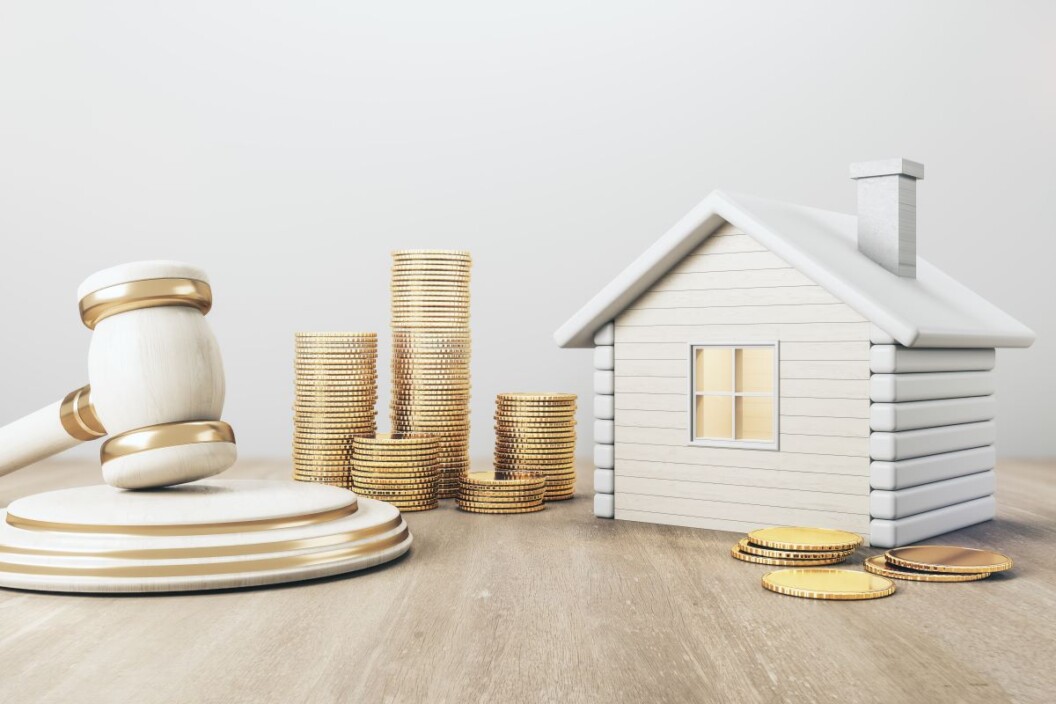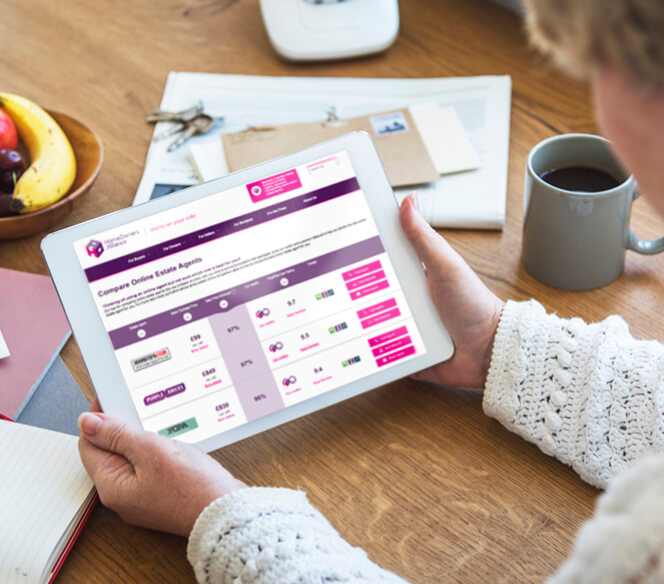Selling a house at auction: a complete guide
When you sell your house at auction, you can sell your home quickly and ensure a guaranteed sale. But you need to know what you're doing, how to set the reserve price and how to make sure the auctioneer doesn't take advantage. Here's how to sell your house at auction and what to be careful of.
Why sell your house at auction?
If you’re looking for a speedy sale and certainty that a buyer won’t pull out of the purchase, then selling a house at auction is a good way to go. Once the hammer falls, the buyer has to put down a 10% deposit, then they have a month to give you the remaining 90%.
Demand from multiple buyers can help quickly drive up the price, especially when they’re all in the room together desperate not to miss out on the chance to own your property.
If you have an unusual or run down property you may find it hard to advertise to conventional buyers but auctions are often attended by expert buyers or people looking for a renovation project who will know enough about the market to understand the value of your property.
If you need to sell up quickly – perhaps you’re moving out of the area or you need the money urgently – then selling a house at auction may also be for you. As long as there is enough interest and you’ve set a realistic selling price, your property should be sold by the end of the auction.
Get an idea of how much your home is worth with our free instant valuation
How much does an auction house charge the seller?
When selling a house at auction, you should expect to pay your auctioneer around 2.5% of the price you get for the property and you also need to find out if there will be any advertising costs.
You will also need to pay a solicitor to help with the legal side of selling prior to the auction and on the day. Solicitors fees vary so shop around for a good price and service.
Compare Conveyancing Quotes
Get instant quotes from regulated and reviewed conveyancing solicitors that cover your area. Our customers save on average £490.
Get conveyancing quotes
How do I choose an auction house?
When you are choosing which auction house to sell your home, look at their promotional material for other houses. Do they seem trustworthy to show your property in its best light?
An established auction house might be more expensive but it is also more likely to know how to market your property to the maximum number of potential buyers.
You might find though that a less well known company is more accommodating and cheaper, so you’ll need to shop around and weigh up the pros and cons. You may also want to compare with online property auctions.
Want to sell your house via an online auction? Check out our guide to the best online property auctions in the UK
Don’t be pressured into selling your house at auction
When selling a house at auction, the sale is binding from the moment the hammer falls and you will sign and exchange contracts there and then. So there is no time for second thoughts or cold feet – if you think an agent is pressuring you, then step back and speak to your solicitor.
Should I accept offers in advance of the auction?
If you’ve decided to sell your house at auction and you’ve paid the necessary fees, why would you then sell it before it even goes to auction?
When a buyer tries to persuade you to sell before going to auction, you know they’re keen so why not let them fight it out with all the other potential buyers. If they’re that keen they’ll be happy to pay what it’s really worth.
And now you know what one buyer is willing to pay, you can use that knowledge to set your reserve price (see below).
There’s also the worry that the buyer knows something you don’t, so putting the property up for auction might give you a more realistic idea of what people are willing to pay.
Auctioning a house: how do I set the reserve price?
Your reserve is the lowest price you will accept to sell your house – this is kept private between you and the auctioneer. If all the offers are lower, the auctioneer will withdraw the property from the auction.
If someone offers your reserve price or above, the auctioneer will drop the hammer and you won’t be able to back out, so think it through. See our guide what price should I sell my house for?
If your house has been on the market already and you haven’t had any offers for the price you wanted, maybe you’re being unrealistic and you need to lower your expectations before going to auction.
Don’t worry if you realise you’ve set your reserve a bit too high, you can still negotiate with a buyer after the auction.
How do I set the guide price?
Your auctioneer will help you set the guide price. When selling your house at auction, the guide price is the price that the public is allowed to know and you can use it to lure buyers in. It’s just an idea of what the house is worth, so even if you put the guide price lower than the reserve, you won’t have to accept it.
What else should I do before auction?
When selling a house at auction, the auction house should be doing their best to market your property but never trust your agents to do all the work for you. If the right kind of buyers aren’t in the room on the day you could lose out.
It’s in your interest to make sure the property is looking its best and open for viewings from perspective buyers in the weeks leading up to the auction. See selling tips to making your home more saleable and valuable.
You should also do your part to make sure the news gets out to as many potential buyers as possible. Publicise your property to your friends on social media and put the word out to your family and colleagues.
How quickly will the sale proceed after auction?
One of the benefits of selling a house at auction is that it’s quick. It might take just a month to go up for auction, then the sale could be completed within 28 days. But this also means you need to be ready to move quickly once the sale has been made.
Get Home Removal Quotes
Compare home removal quotes today with our removal costs calculator.
Compare removal quotes
Selling property and auction pros and cons
In summary, here are the pros and cons of selling a property at auction.
Advantages of selling a property at auction:
- Quick sale: When selling a property at auction, if it’s sold on the day the buyer will need to pay a 10% deposit and the remaining amount within 28 days.
- Your sale is confirmed: With the latest figures from Quick Move Now revealing that 35% of property sales fell down in 2023, auctions can seem appealing by comparison. If a buyer pulls out after making a successful auction bid they’ll face hefty penalties.
- Chain-free: You’ll have the certainty of knowing your sale won’t be jeopardised by other parties as it could be when buying or selling property in a chain.
- No risk of being gazundered: In the normal selling process a buyer may try to renegotiate the price due to a bad survey report or by gazundering, where the buyer drops their offer at the last minute, just before exchange of contracts.
- They attract serious buyers: Auctions attract serious property buyers who may not be put off by problems that a property has.
Disadvantages of selling a property at auction
- High fees: The fees of selling a house at auction typically amount to around 2.5% of the price you get or the property, which is higher than the average estate agent charges. You may need to pay for advertising costs too.
- A sale isn’t guaranteed: Whether or not your property sells at auction will depend on a number of factors such as poor marketing or a poor turn out on the day.
- You’ll have to accept the final offer when selling a house at auction: As long as the final price meets your reserve price your property will be sold.
Selling via the modern method of auction
In recent years a new type of online property auction has become popular; known as the modern method of auction. Used by some estate agents, the modern method of online property auction allows buyers to bid on a property online. It gives buyers the chance to purchase available properties quickly and with no chain. Sellers benefit from online property auctions because a substantial reservation fee must be paid upfront by the purchaser so there’s far less chance of them pulling out. Take a look at out guide on selling with online property auctions.
Want to sell your house via an online auction? Check out our guide to the best online property auctions in the UK
Frequently Asked Questions
Why auction a house instead of selling?
The main reasons to auction a house instead of selling in the traditional way are the speed of the selling process and that the sale can’t fall down after it has been agreed without the buyer facing heavy penalties.
Related Reads
Show More Articles+
Show Fewer Articles−
Top Selling Guides
Show More Articles+
Show Fewer Articles−
How this site works
HomeOwners Alliance Ltd is registered in England, company number 07861605. Information provided on HomeOwners
Alliance is not intended as a recommendation or financial advice.
Mortgage service provided by London & Country Mortgages (L&C), Unit 26 (2.06), Newark Works, 2 Foundry Lane, Bath
BA2 3GZ, authorised and regulated by the Financial Conduct Authority (FRN: 143002). The FCA does not regulate
most Buy to Let mortgages. Your home or property may be repossessed if you do not keep up repayments on your
mortgage.
HomeOwners Alliance Ltd is an Introducer Appointed Representative (IAR) of LifeSearch Limited, an Appointed
Representative of LifeSearch Partners Ltd, authorised and regulated by the Financial Conduct Authority. (FRN:
656479).
Independent Financial Adviser service is provided by Unbiased, who match you to a fully regulated, independent
financial adviser, with no charge to you for the referral.
Bridging Loan and specialist lending service provided by Chartwell Funding Limited, registered office 5 Badminton Court, Station Road, Yate, Bristol, BS37 5HZ, authorised and regulated by the Financial Conduct Authority (FRN: 458223). Your property may be repossessed if you do not keep up repayments on a mortgage or any debt secured on it.






